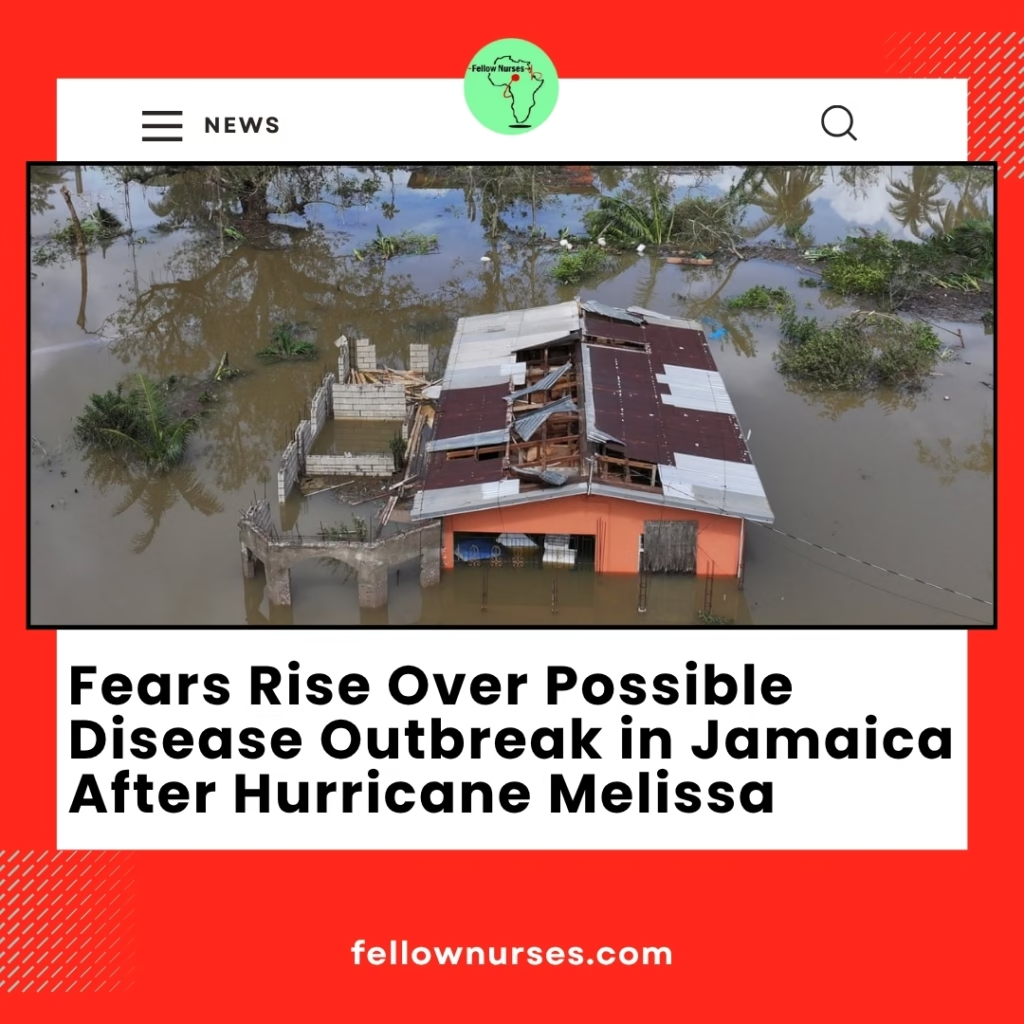Fellow Nurses Africa | Lagos, Nigeria | 05 November, 2025

Concerns are growing among public health officials as Jamaica continues recovery efforts after Hurricane Melissa. The powerful storm, which struck in late October 2025, caused widespread flooding, infrastructural damage, and livestock losses, sparking warnings of possible disease outbreaks in affected areas.
According to reports from the Ministry of Health and Wellness and the National Environment and Planning Agency (NEPA), floodwaters and decomposing animal carcasses have created conditions favorable for leptospirosis, gastroenteritis, dengue fever, and other infectious diseases.
“Health teams have been deployed across affected parishes to ensure the proper disposal of dead livestock and to monitor the sanitation situation closely,” the Ministry stated in an update issued earlier this week. “Residents are being advised to avoid contact with floodwaters and to boil all drinking water.” — Ministry of Health and Wellness, Jamaica
An article published by the Jamaica Observer on November 1 reported that health inspectors were supervising the removal of animal carcasses to prevent contamination and curb vector breeding.
Similarly, the Jamaica Gleaner highlighted expert warnings about the heightened risk of public health emergencies, including outbreaks of gastroenteritis and leptospirosis, if waste and carcass disposal are not handled promptly.
The Pan American Health Organization (PAHO) also confirmed ongoing monitoring and technical assistance to Jamaica, emphasizing the need for improved water safety and sanitation following the storm. (PAHO Situation Report, November 2, 2025)
Across several parishes, residents have been grappling with contaminated water sources and the stench from decomposing animals. A Jamaica Observer report noted that authorities have begun distributing water purification tablets and conducting mosquito control spraying to mitigate disease risks.
One community leader in St. Elizabeth told local reporters that residents are concerned about the impact of flooding on their health and livelihoods, citing the destruction of farms, homes, and wells.
Despite widespread fear, there have been no confirmed outbreaks as of early November, according to PAHO and the Ministry of Health. However, surveillance systems remain active to detect any unusual increases in clinic visits for fever, diarrhea, or other communicable illnesses.
A Ministry spokesperson noted that community cooperation is crucial to keeping the situation under control:
“With proper hygiene, waste management, and vigilance, we can prevent a secondary health crisis from developing in the aftermath of Hurricane Melissa,” the statement read.
The Pan American Health Organization and Caribbean Disaster Emergency Management Agency (CDEMA) have pledged continued support to Jamaica’s post-storm recovery efforts, focusing on environmental health, vector control, and disease surveillance.
Authorities maintain that timely intervention and public cooperation can prevent the spread of disease and protect vulnerable communities as cleanup operations progress.
Fellow Nurses Africa is the independent voice of African Nurses. We educate, inform and support the nursing profession.










